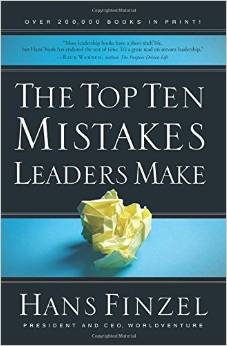Over the years, Traci and I have found a few shows that we’ve really enjoyed. You know, the kind of programs that keep you coming back week after week to see what happens next. Or, in the case of Netflix, DVD or Amazon Prime, the kind of show you binge watch over the weekend. (Here’s a funny little skit from Portlandia about what happens when you get sucked into binge-watching a show.)
What makes a show so appealing? For our tastes, a series we enjoy has good drama, strong character development, unexpected plot twists, surprise guest appearances, shocking revelations and unexpected deliverances. As I was thinking about the qualities of a good season of a TV show, I began to realize that those same attributes have contributed to our story this past “season.” Season One is coming to an end, and season two is about to begin.
Drama: We always tell our daughter Bethany that we want to avoid unnecessary drama. She, on the other hand, loves drama. In fact one night, not too long ago, she and I were talking about some drama at school and before I could say anything she said, “You know what dad...I really love drama with people!”
What BJ loves about drama is the meaningful interactions with others that are full of emotions, sometimes raw, sometimes boisterous, always expressed. She loves the intensity of the moment and God has wired her to experience life to the fullest. She grieves fully. She laughs whole-heartedly. She feels intensely. She expresses without hindrance.
Since January (even before), we have experienced a wide range of drama in our lives. We have wept together as a family. We have rested and experienced joy together. We have laughed, we have sang, we have prayed and we have grieved and through it all, we have felt the cycles of emotions. This season of life has had a lot of drama!
Character Development: Over the past 10 months, we have definitely found ourselves in the crucible of character development. I can say without hesitation that I’ve searched my heart more, probed my motives deeper and spent more time unpacking my heartache with others in the past 10 months, than I have in any other period of time in my life. There has been a lot of hurt, a lot of processing and a great deal of growth that has taken place and I know that more is still to come. Traci and I are not the same people we were on January 16th.

Unexpected Plot Twists: The past season has been full of unexpected plot twists, too. On January 16th my job ended abruptly. On March 12th, we began a tour of houses, that included sleeping in over 30 different locations. When June 19th rolled around, Traci took off on a mission trip to Thailand to gain first-hand experience into human trafficking, and I -- and the three kids -- started of an 11,000 mile road trip. Traci eventually joined up with us, and the trip gave us opportunity to speak to dozens of people and families about Overboard Ministries.
When we returned to Michigan, we returned to unknown answers to big life questions: Where are we going to live? How will we make ends meet? Where will our children go to school? Literally, when we left Wisconsin on Saturday August 8th, we didn’t know where we were going to be spending the night when we arrived in Michigan. Yeah...there were some big plot twists.
Surprise Guest Appearances: In a recent blog, I called out a number of special guests who showed up big time in our first season of Overboard. The list is long and diverse, and yet God used each guest appearance to encourage us on the journey and keeping us moving forward in the Overboard Life.
We had friends provide food and shelter. We had friends give us special gifts and financial blessings. We saw God use others to put gas in the tank, provide back-to-school clothes and supplies, give our family unique memories, spoil us with special outings and lavish us with prayers and grace. The end-of-show credits for this season of our life will take hours to scroll by! The end-of-show credits just featuring our families would be hours long!
Shocking Revelations: When you experience a sudden U-turn in life, you see shocking revelations all around you. We experienced revelations in our lives (things we liked and things we didn’t!), as well as revelations in the lives of others. We saw things revealed in the the way others interacted with us, as well as a new understanding into the lives of others. I saw some ways I missed the heartache of some dear friends (because now I had a personal understanding of their previous experience) and we understood the harshness of others as we healed from open wounds.
Unexpected Deliverances: I was watching one of my favorite shows recently, while I was folding 3 tons of laundry. (yes, it was 6,000 lbs of laundry!) There was a moment I held a shirt in mid-air as I watched a suspenseful scene play out. The hero was a goner for sure, pinned down in a science lab with no way out. As he prepared to make his last stand while trying to save the one person he came to help, a last-second appearance by a friend allowed busted him out of his predicament and out to freedom.
I can’t tell you how many times God sent someone, at just the last second, to bust us out of a predicament and into His freedom. Like the time...Three days after I was released from my job, Traci and I were sitting at the table talking about upcoming bills. She was looking at the banking book, and I was contemplating a life as a crime boss in Lake Ann, Michigan. I asked her how much we needed and she replied, “$600.00 would take care of it.”
We sat there for about 10 more minutes when Traci said, “There’s someone in the driveway. It’s a car I don’t recognize.” Moments later, our friend John was knocking at the kitchen door. We had only known John for the 22 months we had lived in Michigan. I wouldn’t say we knew him super well, though we certainly considered him and his family friends. I had visited with him on several occasions, but this house visit was most unexpected.
John came in, gave me a big hug and expressed his condolences over my job loss. He then shared a story about a work God had put on his heart to do several months prior, but how the thing had kind of fizzled out. Perplexed, he stopped and waited for God’s leading. The day before he came to our house, he heard what happened to us, then he knew how to finish the task he started months before. So there he was on Monday, telling us this story. He concluded, and almost as quickly as he showed up, he prayed with us, shook my hand, and then left the house asking us not to share a word about this story.
When I opened my hands after he left, I pulled out -- you guessed it -- $600.00 in cash. The exact amount that Traci, just ten minutes earlier, had said we needed. This is one story in a hundred (or more!) that illustrates how dramatically some of our needs were met in the most unexpected ways. And don’t worry, I didn’t break my word with John. Since he unexpectedly left this life to join God in the next, I figured I’m free to share, yet another story, of how this man blessed the people around him.
In conclusion... The point of all this? In the book A Million Miles in a Thousand Years, Donald Miller asserts that the qualities that make a movie great, are the same qualities that make a life great. In the same vein, the qualities that make a TV series worth watching week after week, are maybe the same qualities that make a life worth living. A good TV series changes pace, allows characters to develop, keeps you on your toes with new insights, provides lots of good drama and last minute rescues, and makes you smile (or cringe!) when special guests show up.
Don’t forget the most important ingredient of a great series at any season in life: make sure it all points back to God. I certainly wouldn’t boast that we’ve done that flawlessly during this season of our lives, but even when we’ve fallen off the trail or stumbled along the way, we’ve always tried to get back on track. It helps to have great co-stars on the journey with us, people who have repeatedly pointed back to Christ when we’ve lost our way.
So if you feel your life is like a dramatic, gut-wrenching TV series that gives you the sensation of riding on a roller coaster with all of its ups and downs, you might be precisely where you need to be in God’s plan! The drama, unexpected plot twists, surprise guest appearances complete with shocking revelations, unexpected deliverances and deep character development is part of God’s way of making you who He wants you to be, so that you are ready to do what He wants you to do!
And don’t forget to take a look around at others who might be participating in a great season of drama -- your guest appearance in their story might be the way God provides an unexpected deliverance for them!
Go ahead and take the plunge, your season will be better on the water.
















